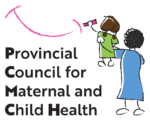Issue 04 | September 2023
In This Issue Sept. 2023 | Issue 4 Indigenous Primary Health Care Council & Provincial Council for Maternal and Child Health: Working together to support high-quality perinatal, newborn, child and youth healthcare for Indigenous People The Indigenous Primary Health Care Council and PCMCH have entered a new partnership aimed at fostering high-quality perinatal, newborn, child […]
Issue 04 | September 2023 Read More »
